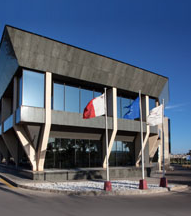Satabank depositors to begin to recover money
Chris Hamblin, Editor, London, 16 November 2018

A few weeks after the Malta Financial Services Authority ordered Satabank to refrain from taking further deposits and onboarding new customers, it is trying to reassure depositors that they will receive their money shortly.
On 20 October, the regulator froze the bank's assets, instructing the accountancy firm of EY (acting as an administrator or 'competent person') to take charge of the assets, assume control of the bank’s business and carry on various functions.
This has resulted in HNW depositors (Satabank has a private banking function) losing access to their deposits. The MFSA is now working with the bank to allow customers to gain access to their deposits in a controlled manner as soon as possible.
This publication asked the MFSA whether it froze Satabank's deposits because of bad money-laundering controls at the bank. It did not answer, referring instead to its public notice of 20 October in which it imposed its restrictions on the bank and appointed EY as the 'competent person' to administer it. It added: "The MFSA’s supervisory work is confidential. We are obliged at law to maintain such confidentiality."
When asked whether Satabank was an offshore bank, the MFSA replied: "Malta is not an offshore jurisdiction and does not licence offshore companies."
On 2nd November the regulator wrote in a 'Q&A' document: "The MFSA’s key concern is to ensure the safety and security of customer deposits and ensure the stability of the Maltese financial system. The decision to instruct Satabank to stop allowing money in and out of the Bank was taken on this basis. This has resulted in consumers and businesses losing access to their deposits. The MFSA is well aware that customers need access to their funds as soon as possible...we have directed Satabank to initiate a controlled process for the return of customer deposits. The details of this process are being determined.
Under EU law, according to the regulator, all Maltese resident individuals are entitled to a basic bank account. The 'Q&A' paper also states that customers are not restricted to traditional bank accounts for the future transfer of their Satabank funds. They may also use e-money or payment institutions registered in EU/EEA countries.
'Money in transit' is an issue. Some Satabank depositors were due to receive money from people with bank accounts elsewhere. The money has left the payors' accounts but has not appeared on the recipients' bank statements. The MFSA is aware of these inbound payments that were ‘in transit’ at the point of the freeze. Satabank may not have received these funds at the date on which the freezing order came into force. As a result, the funds are held in accounts at correspondent banks which, in view of the terms of the freezing order, are not in a position to transfer the funds to Satabank’s accounts. The regulator explains helpfully: "Satabank will not be aware of such monies. You may therefore wish to contact the third party to make enquiries with their own bankers to determine the status of these funds."
In the meantime, the European Central Bank's governing council (Malta is in Euroland) has withdrawn the authorisation of Pilatus Bank, another target of Malta's recent regulatory clampdown. A 'competent person' has been in control of that bank since March, when the ECB took Pilatus' licence away, and remains so. This publication asked the MFSA whether it lacked the power to withdraw a bank's licence on its own account. It replied: "The ECB is the banking supervisor for all banks in the Eurozone. Both the ECB and the relevant national supervisor have the right to initiate the withdrawal of a banking licence in certain circumstances. On the basis of the recommendation by the national supervisor, a final decision is given by the ECB."












